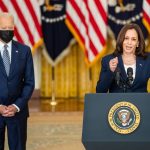Ivanka Trump, the eldest daughter of former President Donald Trump, has recently made headlines for her candid comments on politics, or rather, her disdain for it. During an appearance on the podcast “Him & Her Show,” Ivanka expressed her love for policy but her hatred for the political circus that surrounds it. This illuminating revelation prompts many to ponder the obvious: one cannot separate the two in the modern political landscape, even if one desperately wishes to.
Having served as an unofficial advisor in her father’s administration—and later taking a formal but unpaid role as assistant to the president—Ivanka was heavily involved in significant legislative feats like the Tax Cuts and Jobs Act of 2017. However, those days of political wrangling seem to be behind her. As the Trump family awaits the potential return of Donald to the Oval Office, Ivanka finds herself in the eye of a storm she barely cares to weather. She candidly mentions the dark and nefarious nature of political life and seems much more interested in being a supportive daughter than a political player.
🚨🇺🇸IVANKA TRUMP: "I HATE POLITICS"
Ivanka says she’s done with politics and won’t be working in the White House.
Ivanka:
“There is a darkness to that world that I don’t really want to welcome into mine.”
Instead, she’ll be there as his daughter—watching movies or sports to… pic.twitter.com/eFwi8ztCkJ
— Mario Nawfal (@MarioNawfal) January 15, 2025
What is particularly interesting to note is that, while Ivanka may not exactly fit the mold of the traditional conservative, her sentiments about politics could spark a fascinating discussion. Wouldn’t it be a blessing if more public figures felt the same way? The country might be in far better shape if it were filled with folks who shun the political sphere while wanting to serve their communities. This leads to a comedic yet thought-provoking notion of drafting such individuals into public service—maybe a few less self-interested politicians would help straighten out the ship.
This notion of limiting public service to those who have proven their commitment to the public through service—think military or community involvement—echoes sentiments from classic science fiction. In Robert Heinlein’s “Starship Troopers,” he proposed something similar, suggesting that only those who have sacrificed for their country should be eligible for power. While Heinlein faced the ire of critics who labeled him as extreme, maybe he was onto something. The political landscape today could certainly benefit from disqualifying power-hungry figures who enter the fray without ever having provided a meaningful contribution to society.
Ivanka’s expressed dislike for politics starkly contrasts with the likes of Bill Clinton, Barack Obama, and Joe Biden, who have spent their lives gunning for political power. These figures embody the very essence of political ambition, amassing wealth while giving the impression that their contributions were little more than a mirage in the desert of liberty. The Founding Fathers may not have set stringent requirements for office, but one wishes they had considered making the desire for power, rather than the will to protect freedom, an automatic disqualifier for public office.
But alas, those changes are not likely to happen anytime soon. This leaves the ball in the court of the American public, who are tasked with sifting through the political smoke and mirrors to find leaders who genuinely want to serve rather than rule. In the meantime, as Ivanka plans to focus on being a supportive daughter rather than a political figure, the momentum in a new political era may just be worth watching.




